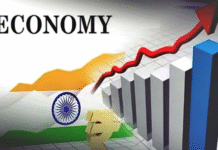New Delhi– Questioning the success of the Modi government’s ambitious financial inclusion campaign, Niti Aayog Vice Chairman Rajiv Kumar on Tuesday said it is more about creating jobs and businesses rather than opening bank accounts.
“When talking about financial inclusion, we should try to focus on how many businesses we have created and how much employment was generated in the past few years,” he said at the 15th Inclusive Finance India Summit here, co-hosted by Niti Aayog.
Kumar said there are good and valid figures “to show financial inclusion has improved in our country”, yet “if one was to be honest” one would agree “real empowerment” of poor people and small and medium enterprises is still a long distance away.
“It’s not just deposits and savings but it’s also credit at an affordable cost that implies financial inclusion,” he said at the launch of Inclusive Finance India Report 2018 by ACCESS Development Services, a think tank working on financial inclusion.
Kumar said financial inclusion must start with finding purchasing power among people. Amazed by the Rs 10.5 lakh crore and rising amount of credit to the farming sector, he said he would like to know how this is improving farmers’ disposable income.
“We should not talk about financial inclusion in isolation of the economic activity that we are trying to improve because it cannot be. It cannot achieve one without the other,” he said.
Citing the report, he said 38.5 per cent of the accounts in the country were inactive in 2017, credit ratio (adults taking credit from banks) dropped from 9.1 per cent in 2014 to 8.1 per cent in 2017 and only two per cent used mobile banking.
Instead of focusing on the deposit side, he said the key to financial inclusion is via the credit path which leads to growth, employment and empowerment. Financial inclusion is like the icing on the cake but the cake has to exist, he said.
“Financial inclusion must be about empowerment, job creation and growth, and therefore about credit to the smaller entities who can use capital much more efficiently very often than the large ones can and one of the key things must therefore be that every year at least the share of MSMEs in the credit must go up than in the past,” he added.
He said there should be a different monitoring indicator to measure financial inclusion and a separate way to monitor how credit is improving the purchasing power.
The Inclusive Finance India Report goes a step beyond and questions the government’s counterpoint of Mudra loans in the “jobless growth” debate. Mudra loans, targeted at micro units, is claimed to have created 72.8 million jobs, the report said.
“It was critiqued on account of it being based on proxy indicators like the number of loans rather than on any empirical study. It is critical that the push for financial inclusion be backed by evidence on outcomes – mere financial inclusion numbers do not mean much and any public or private investment has to be subjected to outcome monitoring,” it said.
In the absence of a demonstrated outcome, there is huge room for questions on the validity of this seemingly seamless link between financial inclusion and inclusive development, it said.
“Financial inclusion per se also leaves room for it being termed a neo-liberal ploy to divert attention from the real issues of poverty and inequality,” the report said.
It went on to add that the loan amount under the Shishu category of Mudra loans may not be sufficient for creation of full-time employment for even one person. Financial inclusion is a means and should not become an end in itself, the report said. (IANS)








